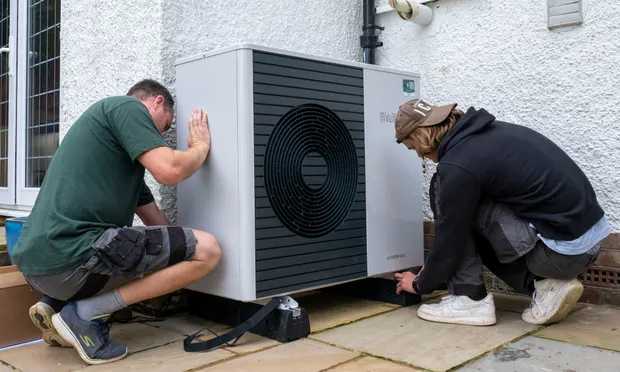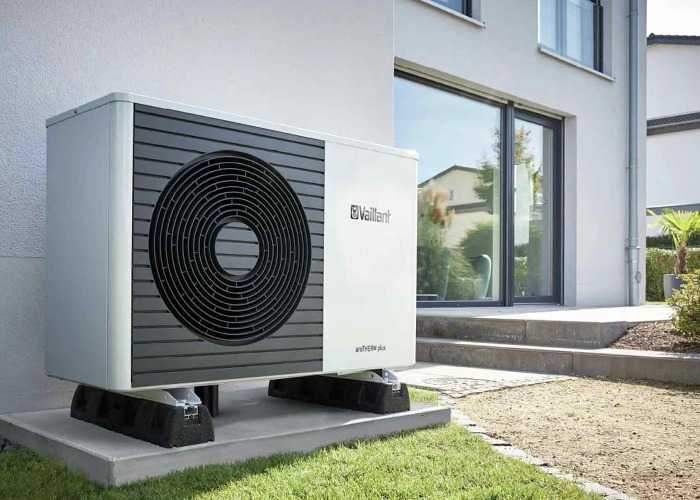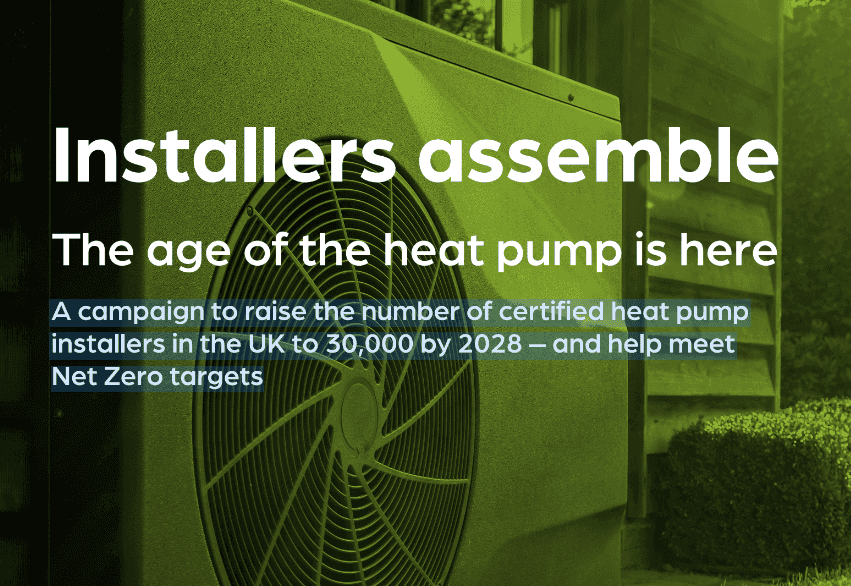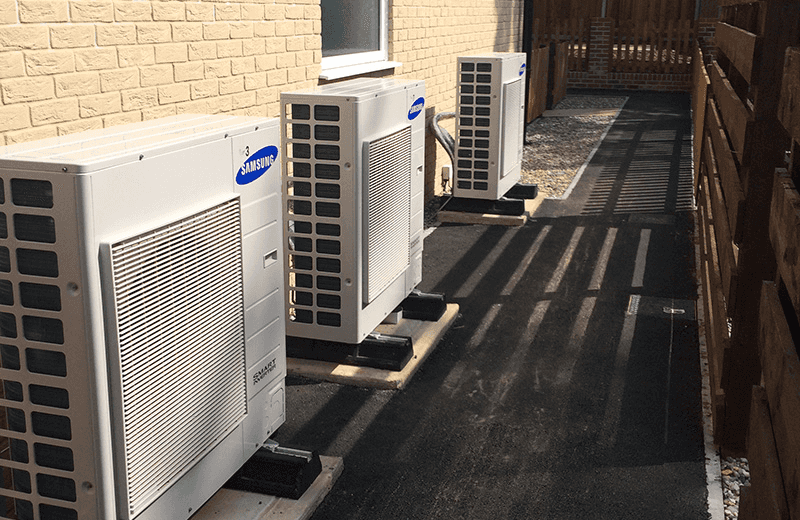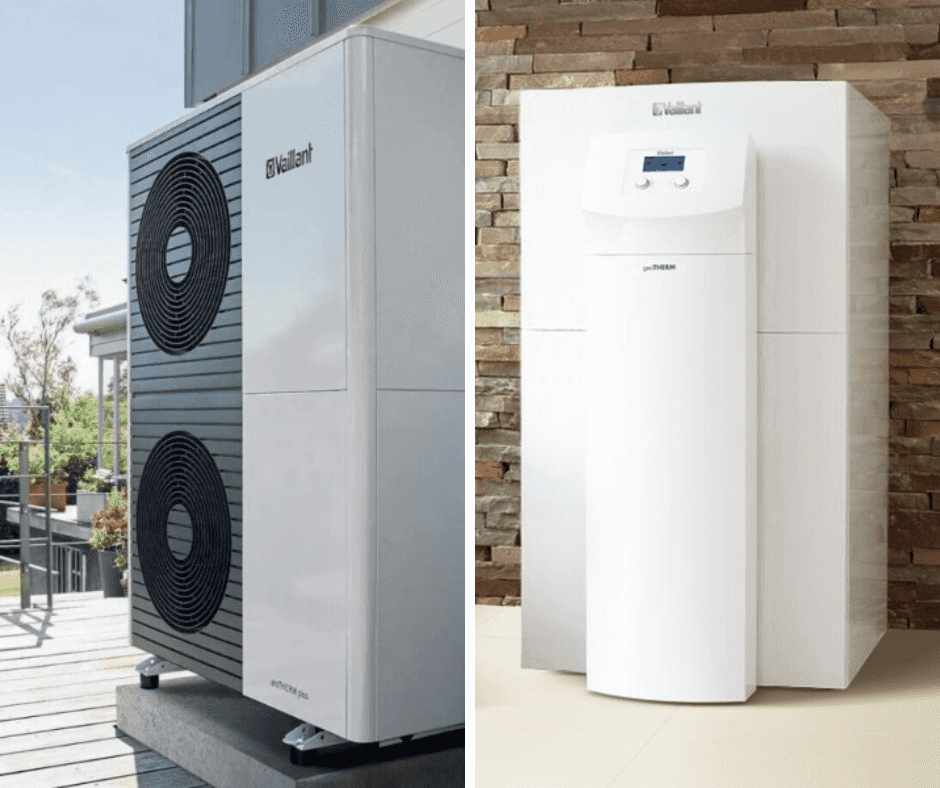
Air Source Heat Pumps vs. Ground Source Heat Pumps - Which Is Best for Your Customer?
Though the two most common types of heat pumps, customers want to be sure they get it right when deciding between an air source or a ground source choice. Yet, with so many factors to consider, selecting the right one can be confusing and time-consuming.
The Energy Efficiency team at City Plumbing understands the challenges customers face when deciding on a heat pump. So, here we offer some help as to whether an air source or ground source heat pump is more suitable.
Common Factors Customers Face When Choosing Air Source or Ground Source
Initially, the big difference between the two heat pumps is about where they pull their heat from. An air source heat pump absorbs heat from the air, with a ground source air pump taking it from the ground. Therefore, the more relevant factors that customers tend to consider include installation, costs, and efficiency.
Air Source Heat Pumps vs. Ground Source Heat Pumps - The Installation Process
One of the first concerns customers often have about heat pumps is the installation process. From the length of time needed to install and the type of planning permission required, to how the heat pump will look and what space it requires in the home, each heat pump choice varies.
An air source heat pump is considered the easier solution when installing and therefore the quicker job. Resembling air conditioner units, they're usually mounted outside the property against an external wall. This means they don't require the installer to dig up any of the outside land.
Air source heat pumps are typically smaller in both size and shape than that of the average boiler. This makes them simpler choices when accommodating the size of the home.
Also, air heat pumps don't usually need planning permission. In fact, many smaller air source heat pumps fall within permitted development regulations for planning. Though, it may be worth considering the individual set-up in terms of noise pollution, particularly if the homeowner lives in a condensed building or apartment block.
Ground source heat pumps on the other hand do need preparation before installation can be completed. Though they will require some space in the home, it's the outdoor space that will need to accommodate the installation of a pipe network in order for it to absorb heat from the earth.
Homeowners will have to make the decision between laying pipe vertically or horizontally, which is dependent on the available ground space. But, typically, the less space here to work with, the increased costs of pipework installation.
Yet, ground source heat pumps on domestic properties are not usually required to have planning permission either.
For both heat pump installations, as long as you don't live in a listed building or area of conservation, the cost of requiring planning permission shouldn’t be a factor.
Air Source Heat Pumps vs. Ground Source Heat Pumps - The Costs
Perhaps, the biggest concern for many customers is the upfront cost of a heat pump.
The cost of purchasing an air source heat pump is understandably cheaper than a ground source heat pump. This is primarily due to the fact that with an air source heat pump you only have to pay for the unit itself. Whereas, with a ground source unit you also have to factor in the additional costs that arise from the preparation of landscaping and groundwork.
However, there is some relief for homeowners in the form of the UK Government's Boiler Upgrade Scheme scheme. This offers customers the chance to fund up to £6000 off cost and installation fees.
Yet, another important factor regarding finances is the running costs of both pump choices. And this is where careful consideration is required when looking at long-term costs.
Though both heat pumps are considered cost-effective when heating homes, a ground source heat pump is considered to offer higher savings long-term. This is because the only basic element of a ground source heat pump that requires the use of electric energy is the compressor. So, ground source heat pumps are deemed the more efficient and therefore make for lower running costs.
An air source heat pump may have to pay out more for electricity in the long run as it has to work harder to bring cold air to temperature. This is something that needs considering beforehand regarding the customer’s current energy tariffs.
Air Source Heat Pumps vs. Ground Source Heat Pumps - Their Efficiency
With installation methods and costs out of the way, the question of efficiency arises when considering which heat pump is a better choice long-term. Considering the varied range and often extreme weather in the UK, the question of how efficient heat pumps are is certainly a prime concern for many customers.
Without question, air source and ground source heat pumps are more efficient than gas boilers. This is because they don't rely on the heat being generated in a gas boiler or an electric heater. Instead, heat is merely carried into the home and concentrated. So, regarding efficiency, this factor may come down to the weather.
Air source heat pumps have to work a little harder to maintain the temperature inside when it drops significantly outside. Thus, if UK winters are particularly challenging they will use more electricity to do this. Yet, though efficiency will vary greatly by model, most air source heat pumps will operate down to between -15°C and -25°C, depending on manufacturer.
So, in light of recent UK heatwaves, alongside the climate getting noticeably hotter, air source heat pumps should perform efficiently for a great deal of the year in the UK.
Ground source heat pumps are considered better at maintaining a stable temperature and remain efficient when temperatures drop significantly. This is simply because the underground temperature is constant all year round. So, for those times when it really does get cold, or we encounter a big freeze, a ground source heat pump won’t need to work harder to generate a comfortable temperature but remain ultra-efficient throughout.
Which Is Better: Ground Source Heat Pump or Air Source Heat Pump?
Overall, when considering the best heat source solution, the individual needs of each household will remain crucial factors.
In general, ground source heat pumps are the better solution for those customers with larger areas of land, who place efficiency over capital costs, and ultimately have more money to spend on their heat pump choice. However, ground source heat pumps can also be a good option for district schemes in tenement houses or flats where air source heat pumps are simply not viable.
Air source heat pumps on the other hand are the better solution when recommending for the general mass market. Though they aren't as efficient as ground source heat pumps, the installation process is certainly quicker, cheaper, and less disruptive to the customer.
The time of year and property locations will indeed play a part in their ongoing efficiency. But a reputable installer will take time to discuss the issues mentioned above, highlighting the different requirements and setups required for each heat pump.
With renewable energy sources prevalent right now, in particular with ongoing escalating energy costs, there's never been a better time for customers to make the switch to either an air source heat pump or ground source heat pump.
For further information on recommending the best heat pump solutions, get in touch with the Energy Efficiency team at City Plumbing. Supporting design and estimate, we can provide advice on the best renewable technologies to help homeowners and businesses make sustainable changes.
